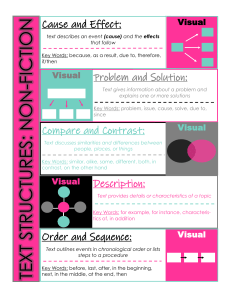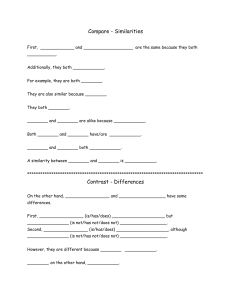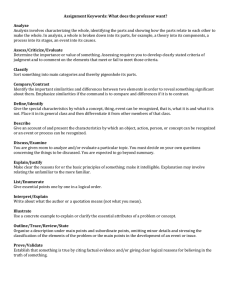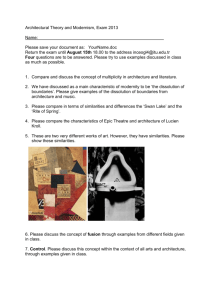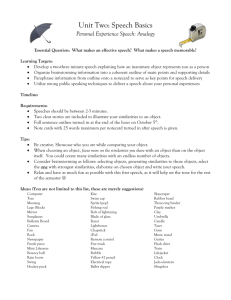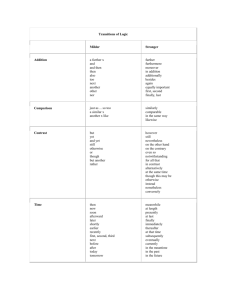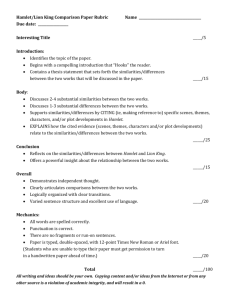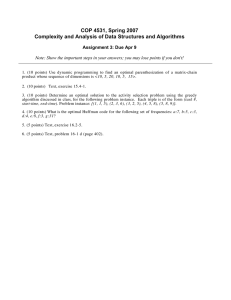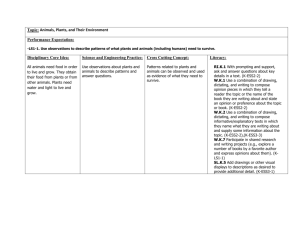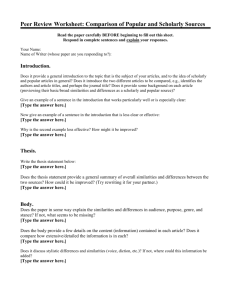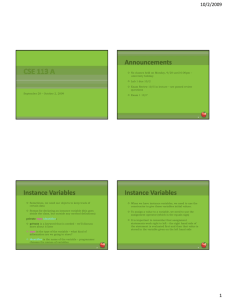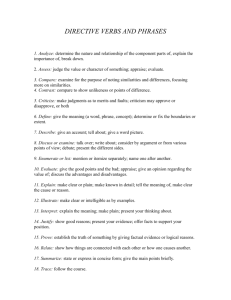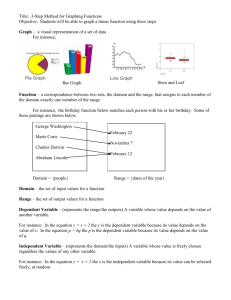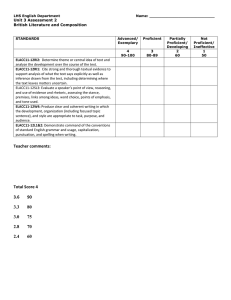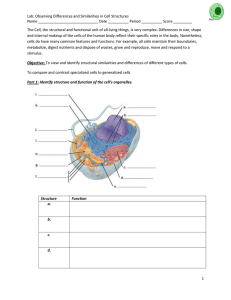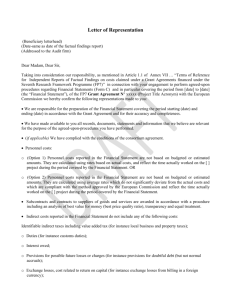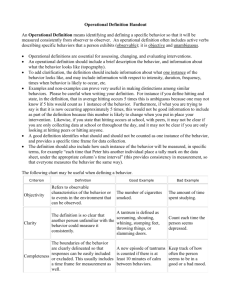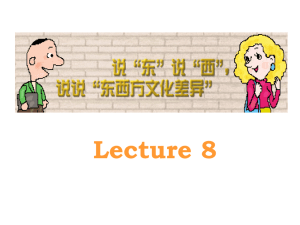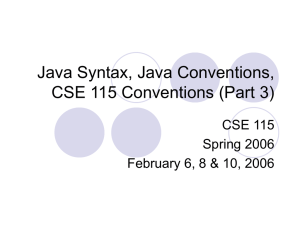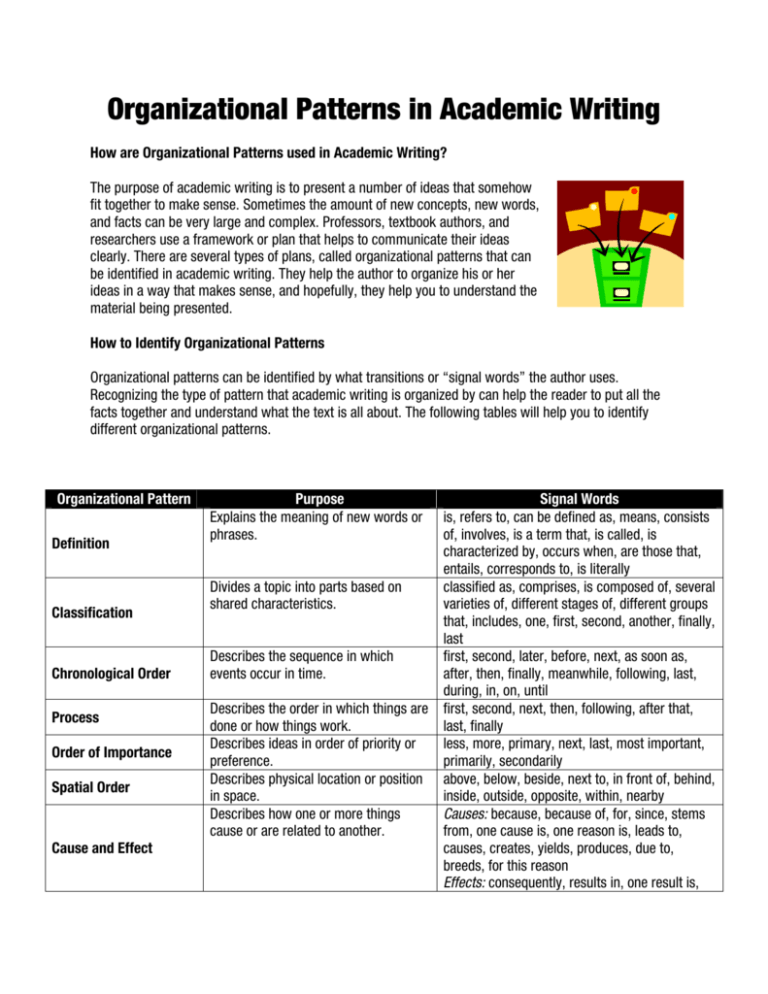
Organizational Patterns in Academic Writing
How are Organizational Patterns used in Academic Writing?
The purpose of academic writing is to present a number of ideas that somehow
fit together to make sense. Sometimes the amount of new concepts, new words,
and facts can be very large and complex. Professors, textbook authors, and
researchers use a framework or plan that helps to communicate their ideas
clearly. There are several types of plans, called organizational patterns that can
be identified in academic writing. They help the author to organize his or her
ideas in a way that makes sense, and hopefully, they help you to understand the
material being presented.
How to Identify Organizational Patterns
Organizational patterns can be identified by what transitions or “signal words” the author uses.
Recognizing the type of pattern that academic writing is organized by can help the reader to put all the
facts together and understand what the text is all about. The following tables will help you to identify
different organizational patterns.
Organizational Pattern
Definition
Classification
Chronological Order
Process
Order of Importance
Spatial Order
Cause and Effect
Purpose
Explains the meaning of new words or
phrases.
Signal Words
is, refers to, can be defined as, means, consists
of, involves, is a term that, is called, is
characterized by, occurs when, are those that,
entails, corresponds to, is literally
Divides a topic into parts based on
classified as, comprises, is composed of, several
shared characteristics.
varieties of, different stages of, different groups
that, includes, one, first, second, another, finally,
last
Describes the sequence in which
first, second, later, before, next, as soon as,
events occur in time.
after, then, finally, meanwhile, following, last,
during, in, on, until
Describes the order in which things are first, second, next, then, following, after that,
done or how things work.
last, finally
Describes ideas in order of priority or
less, more, primary, next, last, most important,
preference.
primarily, secondarily
Describes physical location or position above, below, beside, next to, in front of, behind,
in space.
inside, outside, opposite, within, nearby
Describes how one or more things
Causes: because, because of, for, since, stems
cause or are related to another.
from, one cause is, one reason is, leads to,
causes, creates, yields, produces, due to,
breeds, for this reason
Effects: consequently, results in, one result is,
Comparison and
Contrast
Listing/Enumeration
Statement and
Clarification
Summary
Generalization and
Example
Addition
Discusses similarities and/or
differences among ideas, theories,
concepts, objects, or persons.
Organizes lists of information:
characteristics, features, parts, or
categories.
Indicates that information explaining a
concept or idea will follow.
Indicates that a condensed review of
an idea or piece of writing is to follow.
Provides examples that clarify a broad,
general statement.
Indicates that additional information
will follow.
nd
therefore, thus, as a result, hence
Similarities: both, also, similarly, like, likewise,
too, as well as, resembles, correspondingly, in
the same way, to compare, in comparison, share
Differences: unlike, differs from, in contrast, on
the other hand, instead, despite, nevertheless,
however, in spite of, whereas, as opposed to
the following, several, for example, for instance,
one, another, also, too, in other words, first
second, numerals (1, 2, 3…), letters (a, b, c…),
most important, the largest, the least, finally
in fact, in other words, clearly, evidently,
obviously
in summary, in conclusion, in brief, to
summarize, to sum up, in short, on the whole
for example, for instance, that is, to illustrate,
thus
furthermore, additionally, also, besides, further,
in addition, moreover, again
Adapted from McWhorter, Kathleen T. Reading Across the Disciplines. 2 Ed. New York: Pearson Longman, 2005

